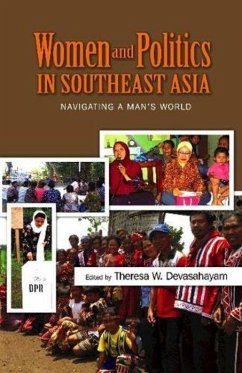"This book aims to contribute to the discourse on women and politics in Southeast Asia. The chapters, covering Indonesia, Myanmar, the Philippines, Timor-Leste and Singapore, analyse the asymmetrical power relationships between the sexes and how power differentials between men and women play out in the realm of politics are a reflection of the power contestations women face with men in other spheres of everyday life. Each chapter seeks to ask a different question in terms of where women viz. men stand in the political landscape of their countries, in an effort to answer the question of "Where are the women" in the gender trope in Asian politics. While the chapters are primarily empirical as they delve into the challenges, contradictions and conflicts Southeast Asian women encounter, the main assertion is that women's struggles in the realm of politics are a result of having to operate within power structures created principally by men, thereby producing barriers for women to enter politics, on the one hand, and to increase their numbers and widen their sphere of influence, on the other. Recognizing that Asian politics is dominated by men, the question of how women have negotiated a value system that is inherently male-centred and male-controlled is also discussed. The implicit narrative demonstrated in this book is that the political arena should not be considered in isolation from other arenas but instead is essentially a mirror of other arenas - whether the home, workplace, nation, and/or global spaces -each marked by power contestations between men and women and having a spill-over effect on the other, as well as shaping women's experiences in the political realm"--
Bitte wählen Sie Ihr Anliegen aus.
Rechnungen
Retourenschein anfordern
Bestellstatus
Storno

